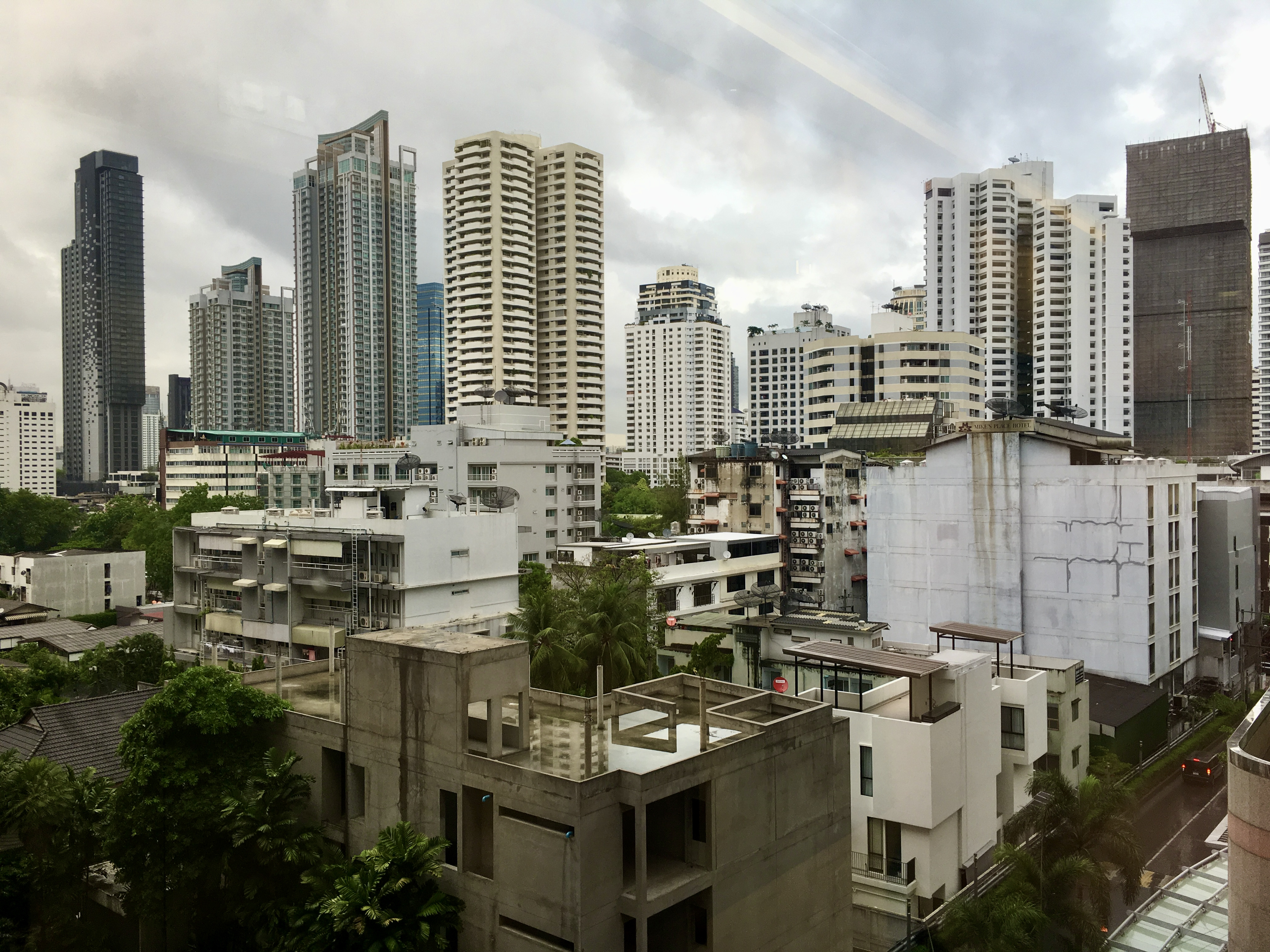In the early afternoon, as one lady projects (a family verb meaning “does things around the house that aren’t daily chores”) and the other naps, I sit quietly and watch Tai Hang. The light is great, late summer humidity giving the approaching golden hour a helping hand. The squawking birds wheel and yell, perch on rooftops and cavort in bunches above the low buildings. The balconies and roofs of this small neighborhood are empty, the day’s sun still too close. This morning, a breezy 28 C, was the first sign of fall’s approach, the kind of morning that perks everyone up, that gives the dogs and children an extra bit of energy. Fall is not yet here though, in early September, not in Hong Kong, where the heat will linger until November. Just it’s finger tips, brushing over the city before the full light of day. And so in the afternoon we swim in the public pool, indoors, and nap, one and then the other, until the heat fades.
Hong Kong has wonderful public pools, part of the athletic infrastructure that shapes both the space and the population, who are active, are athletic, are fit and adventurous. In so many ways the foundations laid here are good, and should be built on. In so many ways we are trying to build, to be part of this city. On Saturday I chat with neighbors, with shop owners, with the fruit stand family, and am happy. It’s been four years and Hong Kong feels like home.
The question, then, is how to be patient with myself, with our trajectory. Patience is an oft-mentioned requirement of parenting, a commonly mentioned challenge, to have enough. Yet in all those tellings it is patience for the child, for the burdens of care, for the pain and limitations of childbirth, of rehabilitation and recovery, and of physical growth. These, to me, are the external requirements, the clear and valuable lessons of being part of a family, of trying to build a structure that can raise a human. Patience for each other, while still too limited, is a common goal, and a well-understood shortcoming when it falters.
Less discussed, and perhaps less easy to build, is patience with one’s self.
In our family this too is a constant thread, due to injuries and rehab, due to the challenges of climbing and frisbee where our goals are so frequently beyond our bodies’ abilities. We council the other to give their body the time it needs to heal. We try hard to remind each other to have patience with our own sore knees, with the wrist never quite perfect after that motorcycle accident, with the back that refuses to bend smoothly, and with shoulders that are never again as flexible as we’d hoped. We try to be the buffer between what the other person wants to achieve and what they are able to, to cushion them from their own disappointments.
It is not always easy.
Harder still is to give ourselves that gift. Harder still is to be truly patient with our own slow pace of improvement, with our own slow progress towards strength, towards competent leadership, towards deep friendship and emotional intelligence. Harder still is to be patient with the years of our life that seem to drift by without the kind of growth we’d hoped for, without the experiences we once thought we’d have.
In many ways these are the challenges not of children but of the pandemic, not of our family but of our expectations. Yet the same call for patience comes to me in seeing one family member asleep across the room and feeling the immediate need to accomplish things in this bit of time. The true need is for patience with my back, sore from rocking her to sleep, and with my mind, tired from the work week. The challenge is not in being calm until she nods off but in being calm once she has done so, in being productive, whatever that means, without feeling like these moments are fleeting. At forty three I am half way through the average lifespan of someone of my gender and country of origin. There are not infinite days to come, but there are enough to let the body and mind appreciate this sunset, and watch these birds for a while. There is no need to move quickly, and nothing I am missing, other than perhaps a good photo as my phone is in the other room.
Ah well, the sun will set again tomorrow. Time instead to watch the sky.

